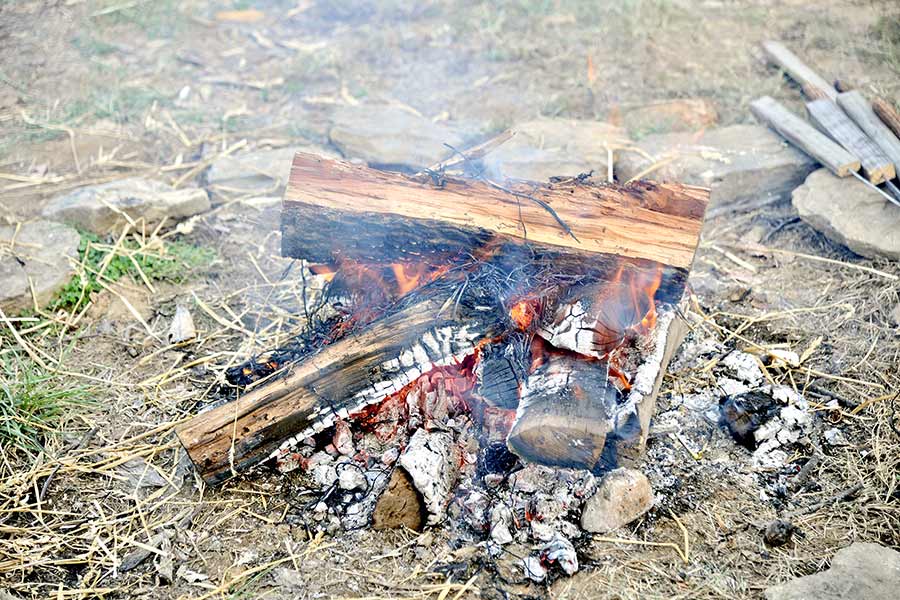
Camping trips just aren’t complete without a warm, crackling fire. However, a common question that arises is whether or not campfire wood should be seasoned before use. Some swear by seasoned wood for its efficiency and ease of use, and others argue that it’s not necessary.
In this post, we’ll delve into the pros and cons of using seasoned wood and help you make an informed decision before your next fire.
Firewood for the Perfect Campfire
When selecting wood for a campfire, it’s important to consider if it’s been seasoned. Seasoned wood implies that it has been drying for an extended period, usually six months to a year. By doing so, the moisture content of the wood reduces, resulting in higher efficiency and higher temperatures when it burns.
Opting for seasoned wood has its advantages for a few reasons. For starters, it’s less likely to produce smoke, which can be bothersome to you and those around the campfire. Furthermore, it provides a more complete burn, resulting in more heat from your fire.
In contrast, utilizing unseasoned or “green” wood for your campfire can lead to several issues. These types of wood contain considerable amounts of moisture, making it burn less efficiently and generating less heat than seasoned wood. It also has the potential to produce more smoke, thereby making it tough to take pleasure in your campfire.
Other Posts of Interest
- What Is Heat Treated Firewood? And Why It Matters
- 21 Tips For Cooking Over A Campfire
- Can You Start A Campfire With Gasoline?
- Is It Safe To Burn Treated Wood In A Campfire?
Apart from the downsides to efficiency and undesirable smoke, there are safety concerns when it comes to burning unseasoned wood. The surplus of moisture in the wood may cause it to crackle and pop, leading to flying sparks and embers from the fire. This scenario can be dangerous, notably in dry surroundings where the threat of wildfires is possible.
So yes, campfire wood should be seasoned to ensure it burns efficiently, produces less smoke, and minimizes safety risks.
And another thing to remember, purchasing firewood within the local area is ideal. Moving firewood from one location to another presents a risk of transmitting pests and diseases that can be hazardous to local ecosystems. Furthermore, buying firewood locally contributes to supporting the local economy.
Season It
To summarize, seasoned wood is always the better option for your campfire as it provides higher temperature, less sparking, and less bothersome smoke. Therefore, have a reliable stock of seasoned firewood before embarking on your next camping adventure.






